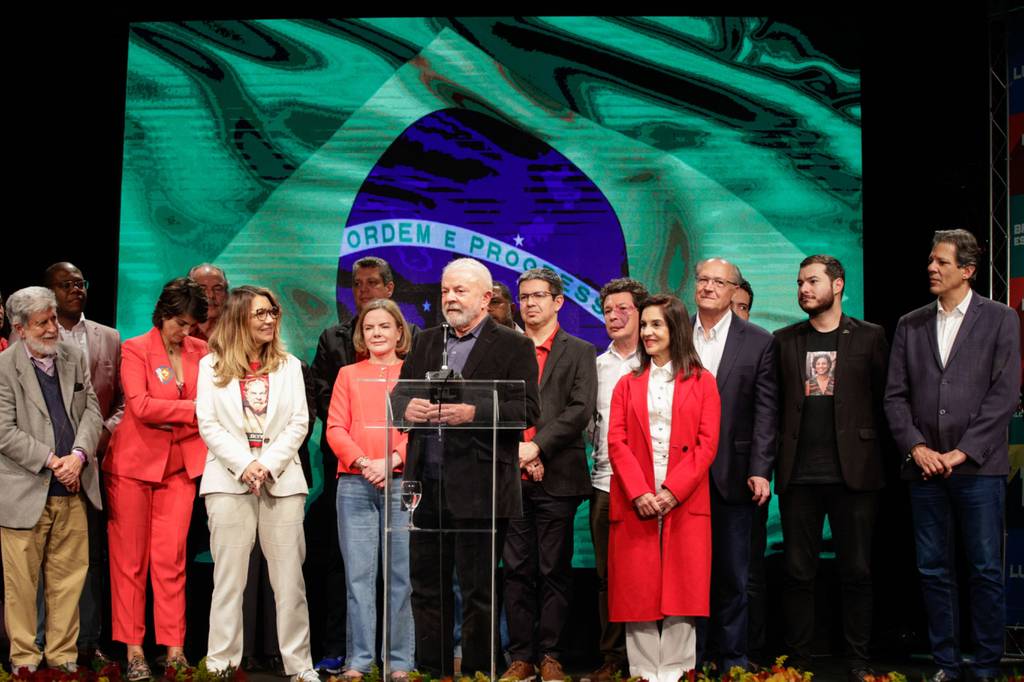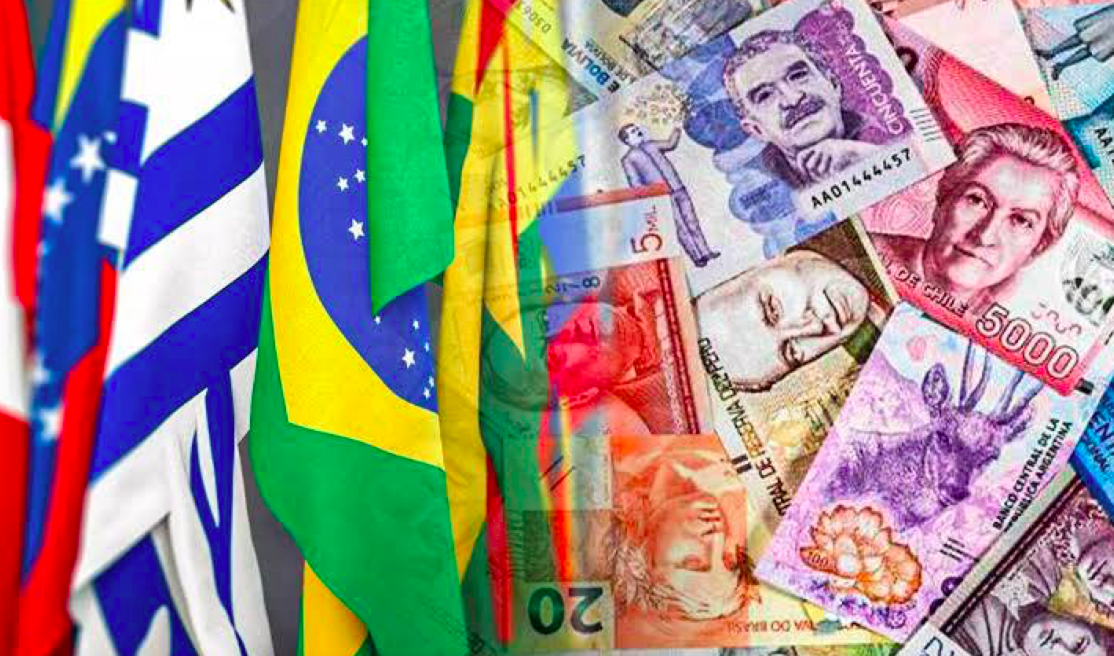By Sebastián Osorio Idárraga
A long campaign period and two electoral rounds left Luiz Inácio Lula da Silva as the new president of Brazil, beginning his term on January 1, 2023.
After his election, there are many issues that his internal agenda has in common with that of other presidents recently arrived in the countries of the region, such as Gustavo Petro in Colombia, Gabriel Boric in Chile, and even Andrés Manuel López Obrador (AMLO) in Mexico.
The energy transition, environmental care and even economic integration have been ideas that, although only discussed, have been reflected in the speeches of the leaders.

However, experts and analysts told Bloomberg Línea that regional integration with Lula da Silva’s coming to power in Brazil is not an easy goal to achieve, especially given the internal challenges that he and the other leaders face in their countries.
“It is a fact that leftist governments have been established in Latin America, but not all the left is the same. At this moment, it is not possible to speak of an agenda of the left, since we have democratic lefts represented in Chile, Brazil and Colombia, and we have authoritarian lefts, represented in Nicaragua, Cuba and Venezuela, and that is an impediment to integration political and economic,” said Marcos Peckell, political analyst, academic and columnist.

POLITICAL AND LEADERSHIP CHALLENGES
The electoral results were the first to show that Lula da Silva faces major internal political challenges, after a campaign marked by polarization and false news.
Although the new president stood out in the first round with 48.2% of the votes against Jair Bolsonaro’s 43.2%, in the second round he won by an adjusted result of 50.9% of the votes compared to 49,1%.
“It is too early to say it, and the first thing is that Lula da Silva’s priority is not going to be foreign policy, it is going to be domestic policy, due to the polarization that currently exists in Brazil and the difficulties of governability, since he does not have the majority in both chambers,” Mauricio Jaramillo, a professor at the Universidad del Rosario, told Bloomberg Línea.
For Jaramillo, Lula da Silva has the challenge of overcoming the polarization that Bolsonaro marked at the end of his government and reactivating the economy two years after the Covid-19 pandemic.
In addition, he said that although regionally there are expectations and surely there will be leadership from Lula da Silva for regional initiatives, “the left is very divided and that makes it less possible for a regional leadership, it has happened with Petro, Boric and Fernández, they all had to focus internally,” he said.
WILL UNASUR REVIVE?
International integration organizations have marked the political and economic agendas of the last decades in Latin America. Initiatives such as the Community of Latin American and Caribbean States (CELAC), Union of South American Nations (Unasur), the Organization of American States (OAS), the Andean Community of Nations (CAN) and the Pacific Alliance (PA) are clear examples of this.
Precisely after Lula da Silva’s victory, former Latin American presidents together with former foreign ministers, former ministers, current congressmen, directors of international organizations, among others, sent a letter last November to 12 leaders of the region, including Lula da Silva as president-elect, emphasizing that “integration is more necessary today than ever,” referring to Latin America.
In the text, in which they ask to revive Unasur (of which Lula da Silva participated as founding president), the signatories point out that “urgent intervention is required from multilateral organizations, which today are unfortunately weakened and are often powerless.”

According to Peckell, attempts to “remove Unasur from the cemetery” could take place, but it would have to be under very different conditions under which it was chanted by Lula da Silva and Chávez more than 10 years ago.
Meanwhile, Jaramillo points out that the idea of relaunching this body is already widely connected, but the doubt is that it will “reach political capital” for Lula da Silva.
ECONOMIC INTEGRATION, THE KEY COMMITMENT
With the arrival of Petro and Boric to their respective presidencies, calls have increased for Latin America to work as a bloc on some fronts, including environmental and economic ones. An already debated proposal was even revived: having a single currency for LatAm.
However, analysts consulted by Bloomberg Línea have indicated that although there is a majority of left-wing governments in the region, the agendas are not the same, there are serious differences from the position of the market economy, the independence of central banks and the exploitation of resources and, therefore, a common economic agenda cannot be foreseen.
Peckel specified that on an economic level, the situation in LatAm is quite precarious, especially after the Covid-19 pandemic.
In addition, he said that the countries of the region are different economies and one cannot speak of a single economy in the region. “Brazil and Mexico, for example, the first has its main trading partner in China, the second has it in the United States,” he explained.
To this he added that the countries of the region share little trade, if compared to the existing one with the two mentioned economic powers.
“And we have economies of economies. The left are not all the same, there is the Argentine case of an economic dysfunction that has been going on for decades and always making the same mistakes, ending up with the country suffering from excessive inflation and devaluation,” he said.
Added to these issues is the energy transition, a factor of many asymmetries, as defined by Jaramillo. For the professor at the Universidad del Rosario, the pandemic and Russia’s war in Ukraine delayed the transition objectives and the region’s leaders now have different positions: the anti-extractivist left, as Petro and Boric define themselves, and the other left who believes in transition like AMLO in Mexico, but at a slow speed.
“With a barrel price of oil above US$80 or US$90, and with so many social difficulties, it will be very difficult to move forward,” he said.

LATAM’S AGENDA TOWARDS THE WORLD
Although the internal challenges are extensive and tend to cloud the ability of leaders towards regional initiatives, experts see the possibility that the region puts two key issues on the global agenda:
- The energy transition: a reality that discourses are already taking to international stages, as Colombian President Gustavo Petro did at COP26.
- Migrations: due to the Haitian issue and the Venezuelan issue, migrations have also gone into the background due to the war in Ukraine, but Latin America wants to generate a higher commitment from the world so that there is a flow of international cooperation for the countries that are receivers and generators, as in the case of Mexico and Colombia.
But the arrival of Lula da Silva to power is not a guarantee for this international leadership. “Brazil is not influential simply because of its size; Brazil is influential mainly when it is successful. During periods of stagnation or instability, Brazil loses prominence in Latin American diplomacy. So the big question is whether Lula da Silva can bring back the magic of the 2000s in the 2020s. I have doubts. If Brazil continues in crisis, it will not be a leader in Latin America,” were the words of Brian Winter, vice president of the Americas Society/Council, to La Nación, at the end of the previous year.
With information from Bloomberg

